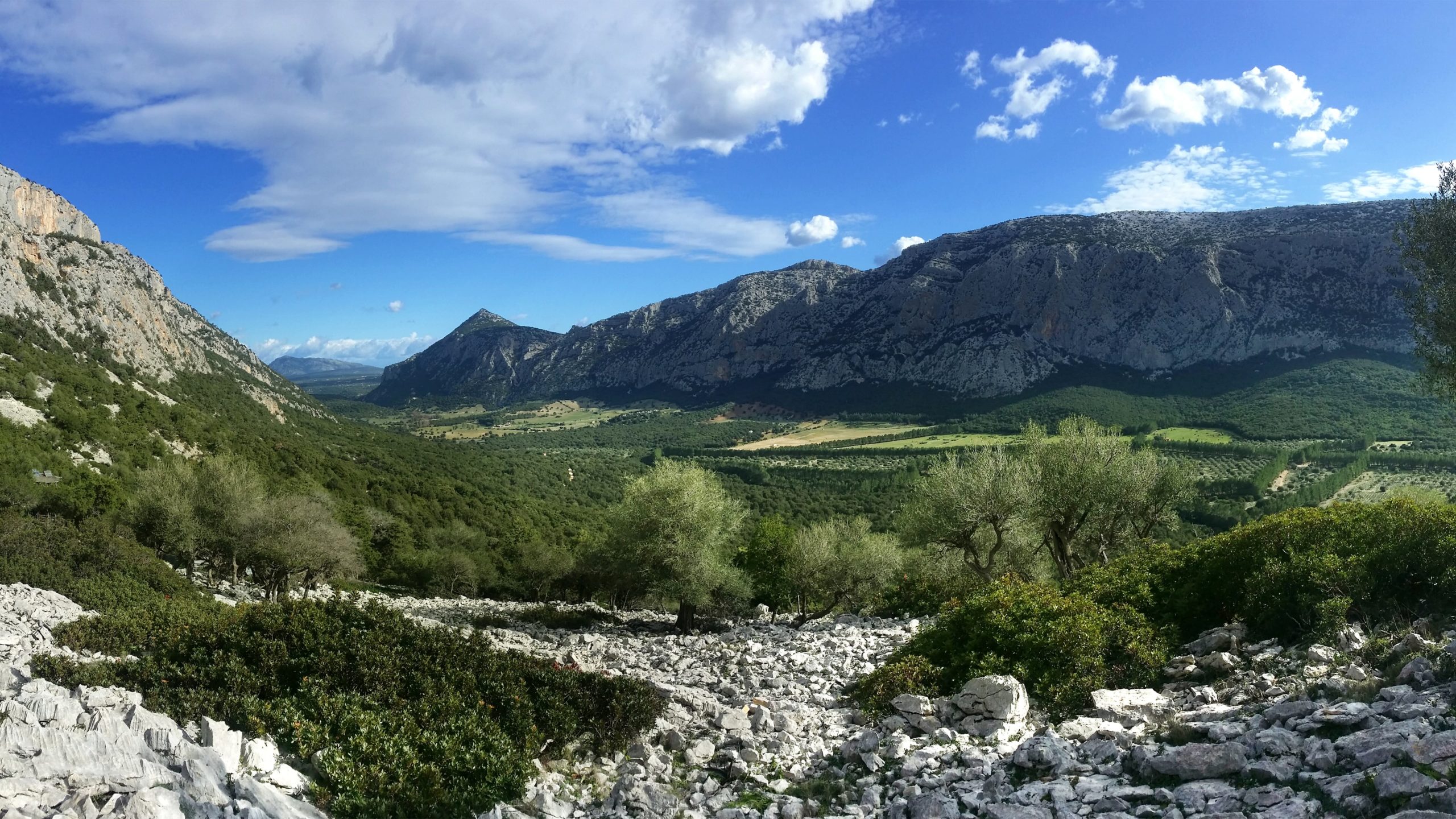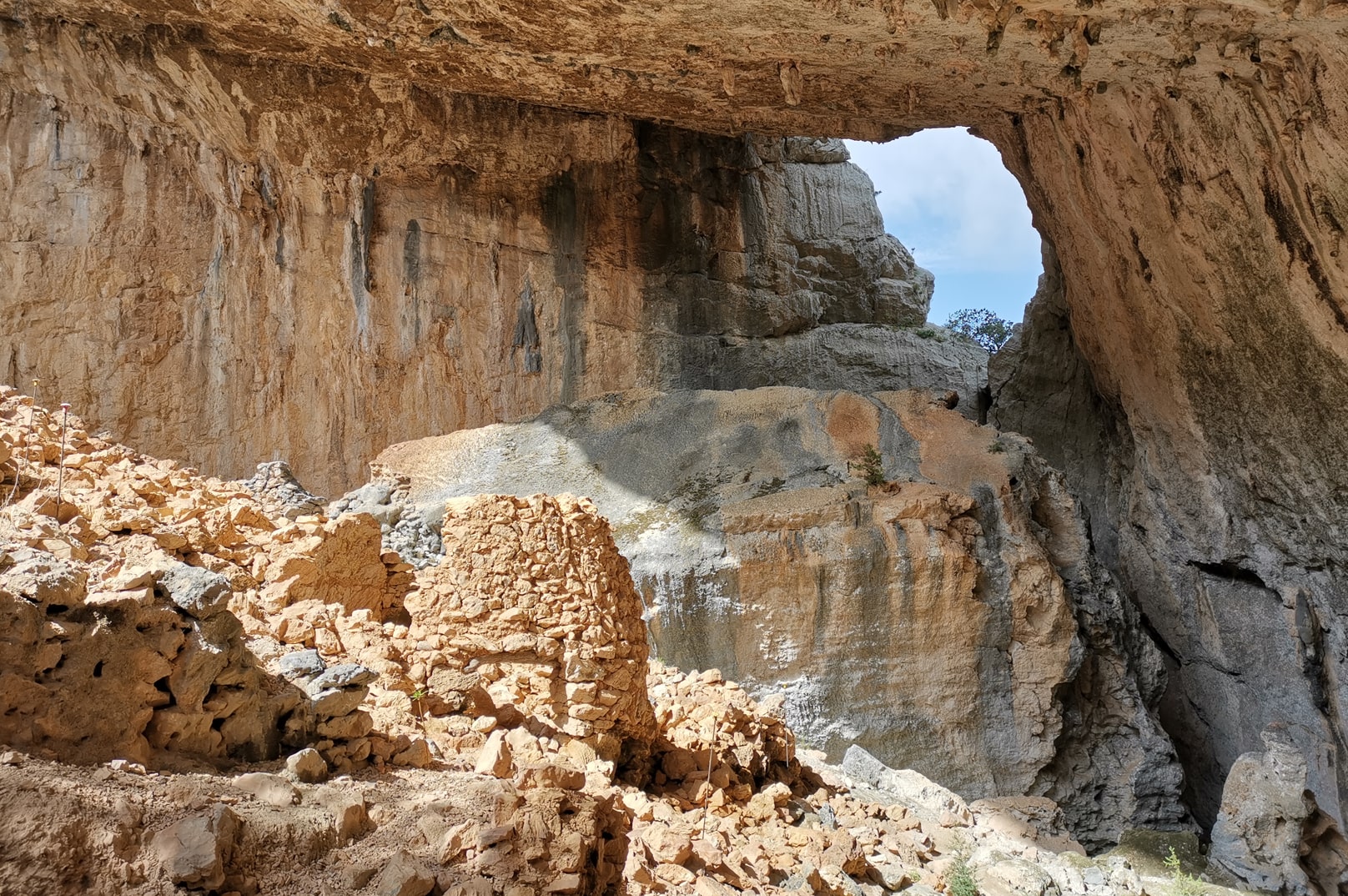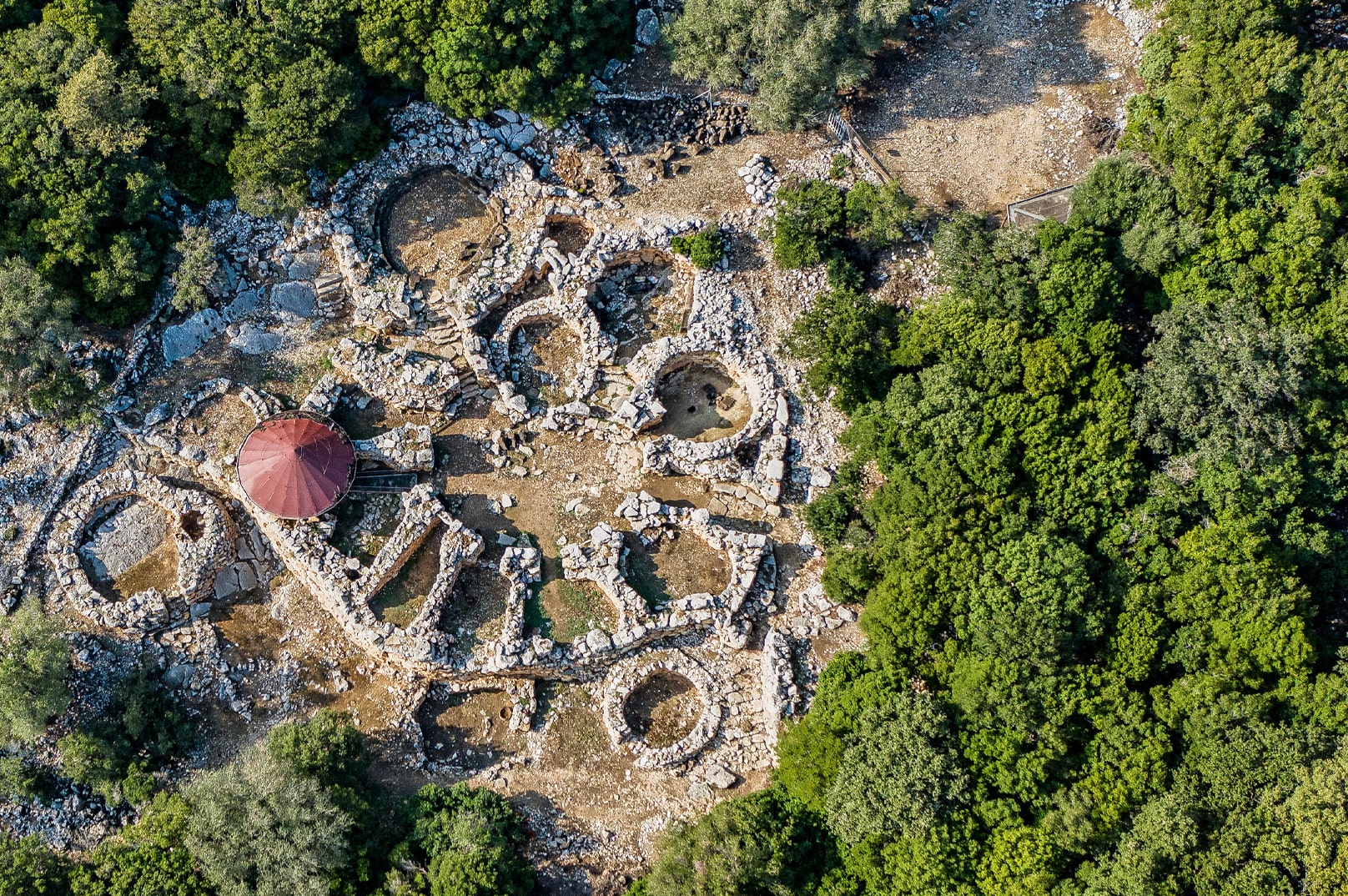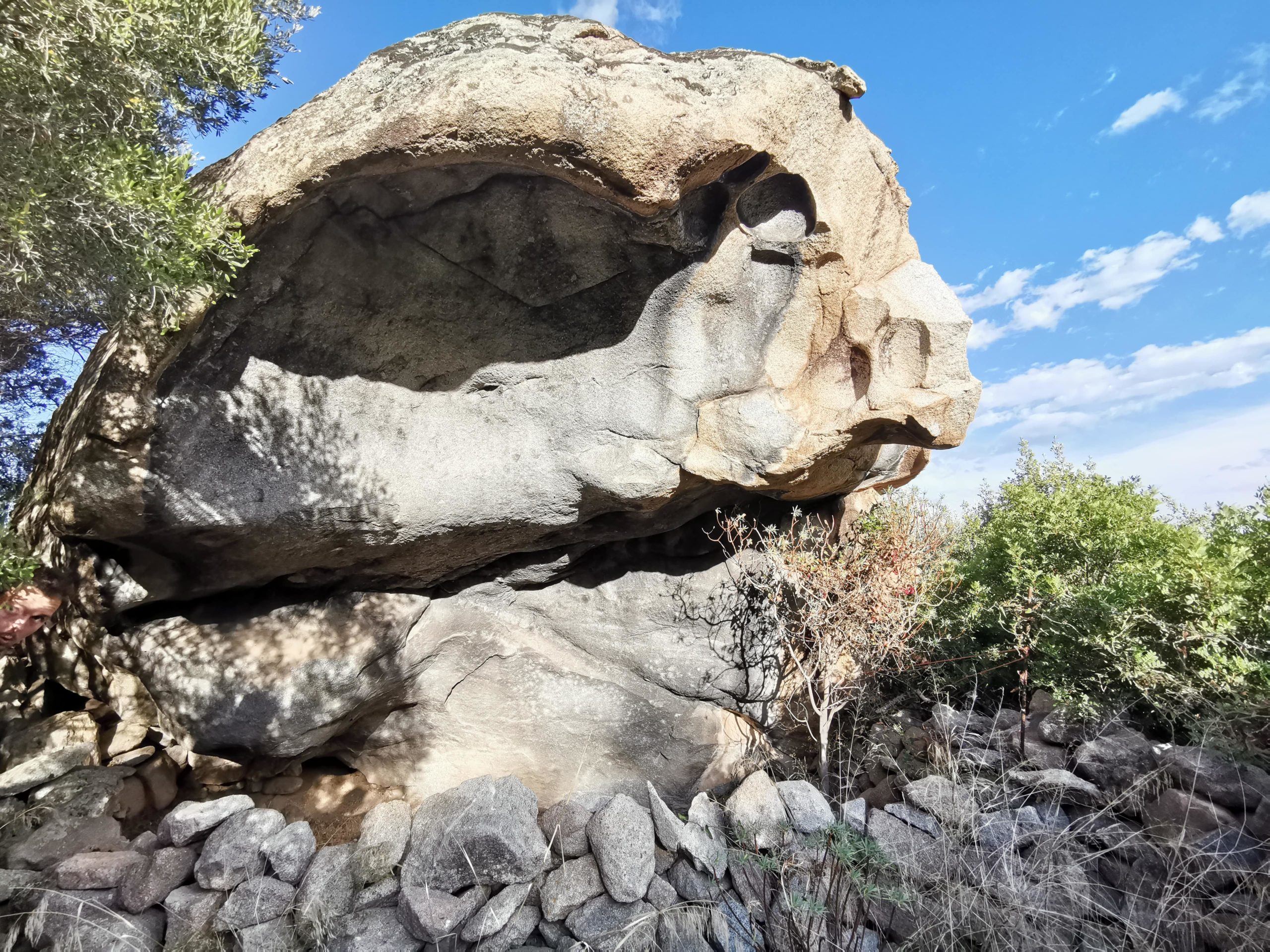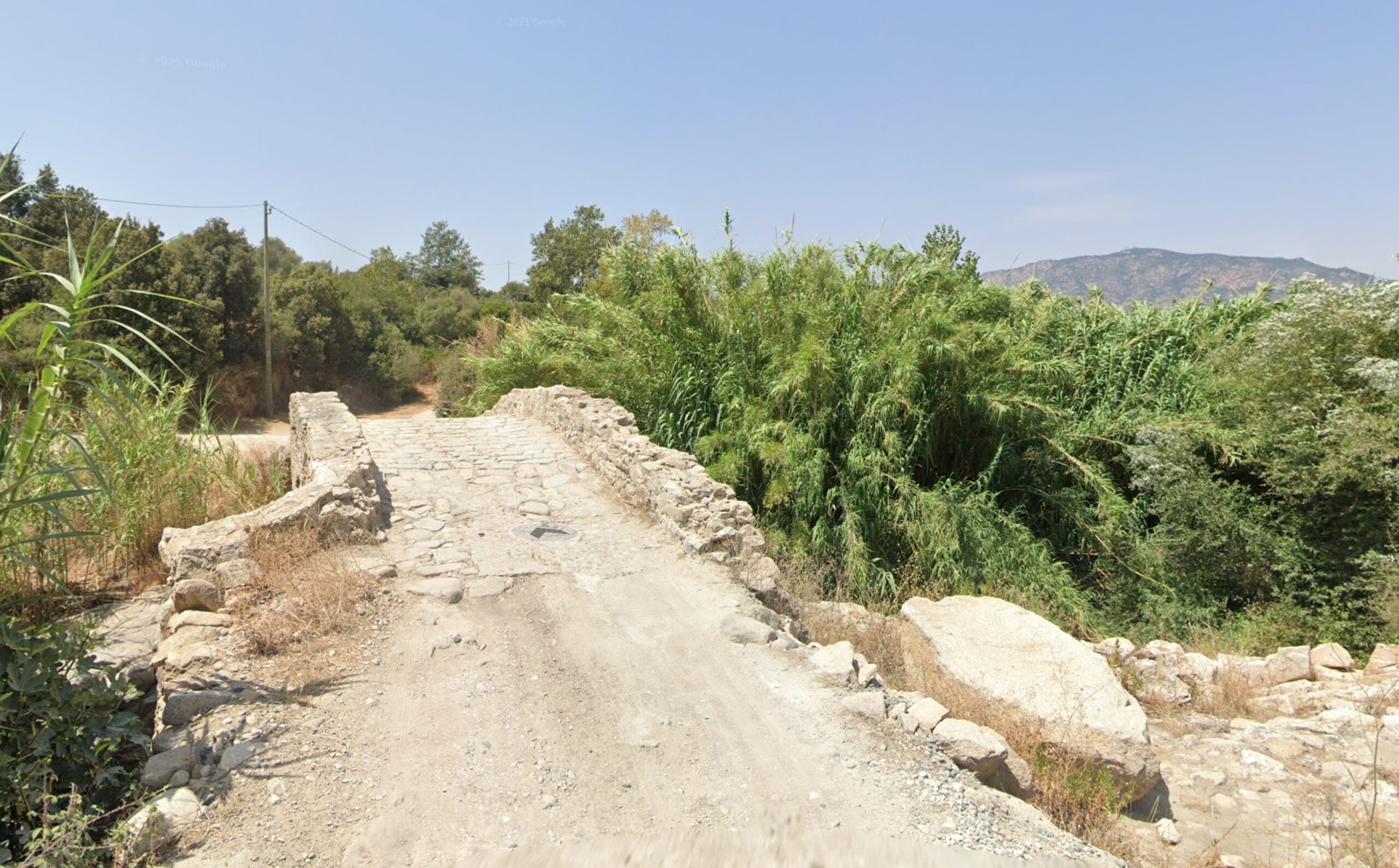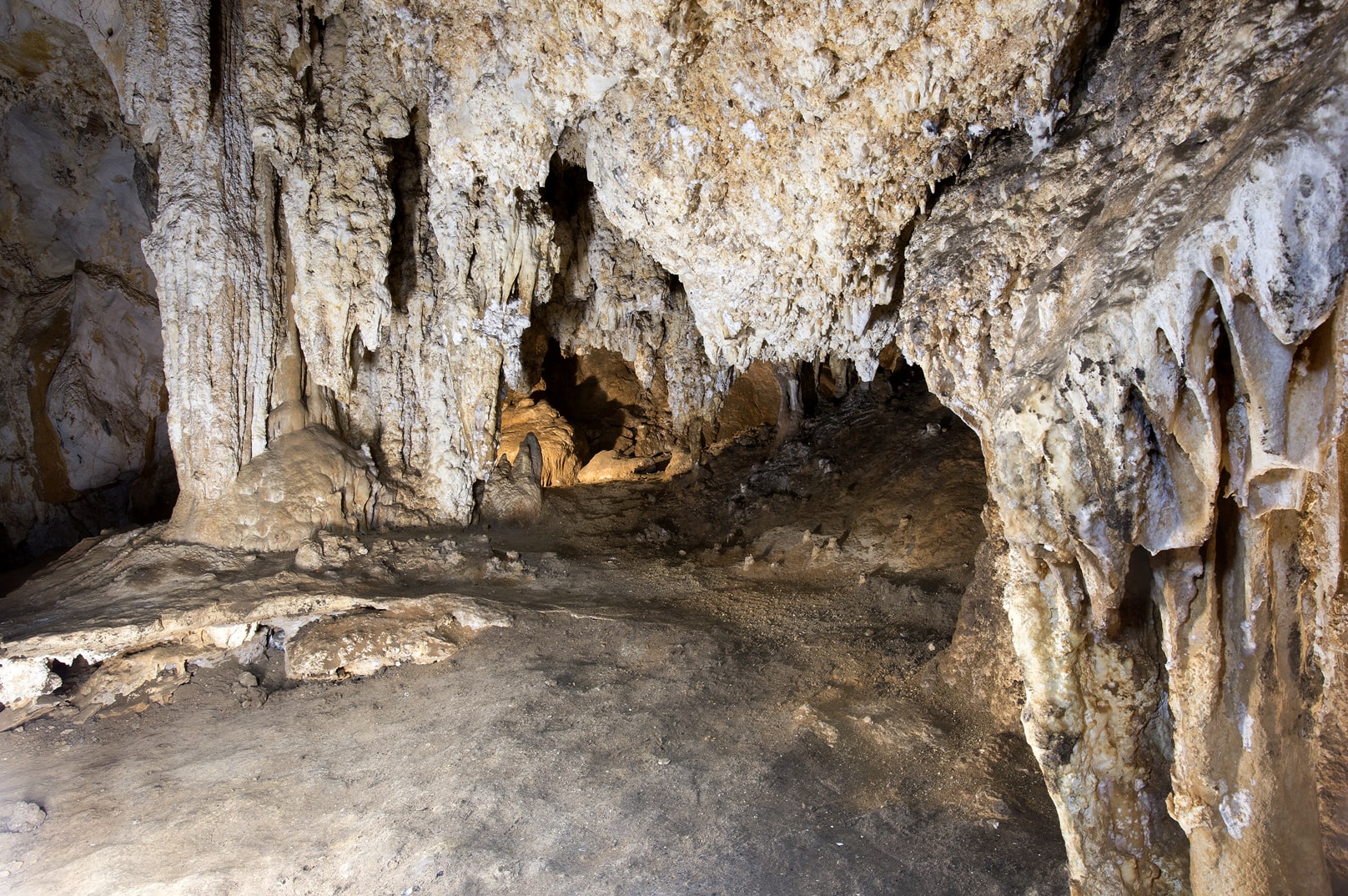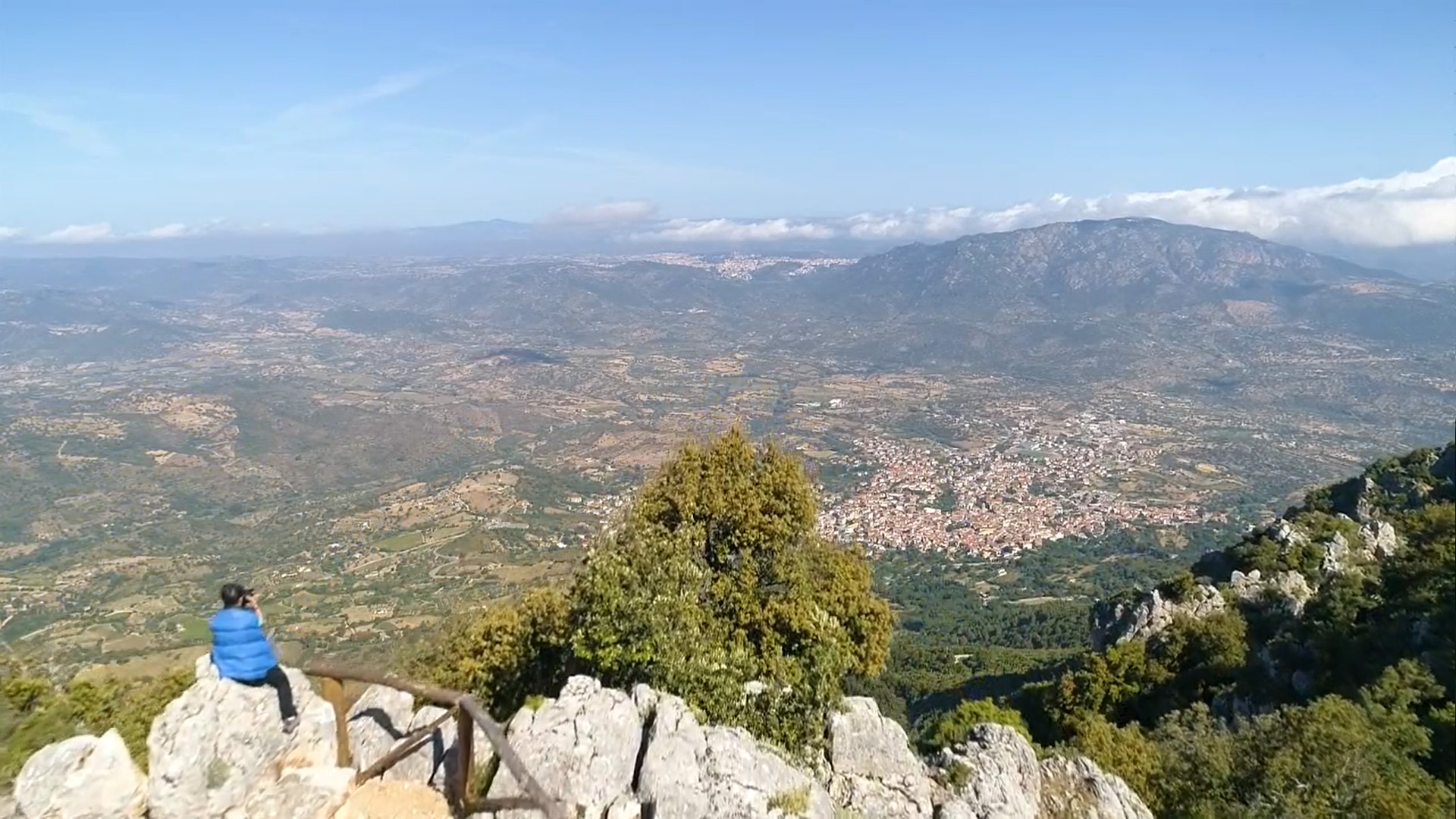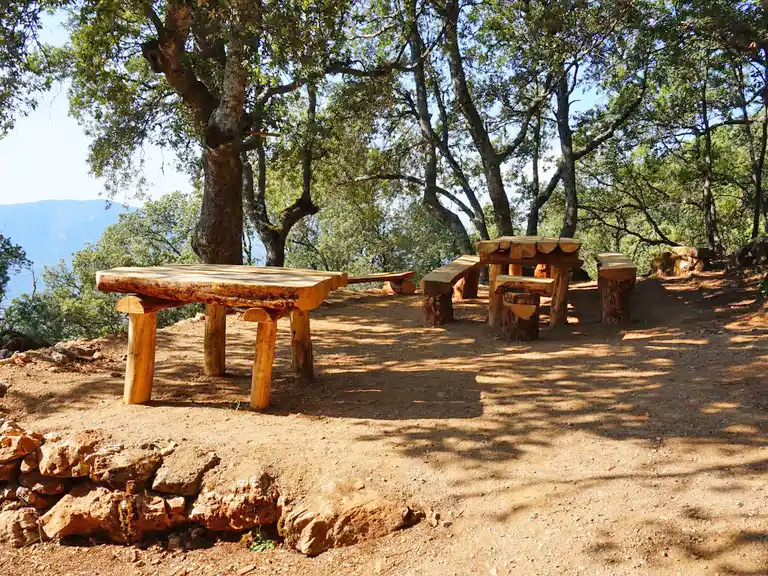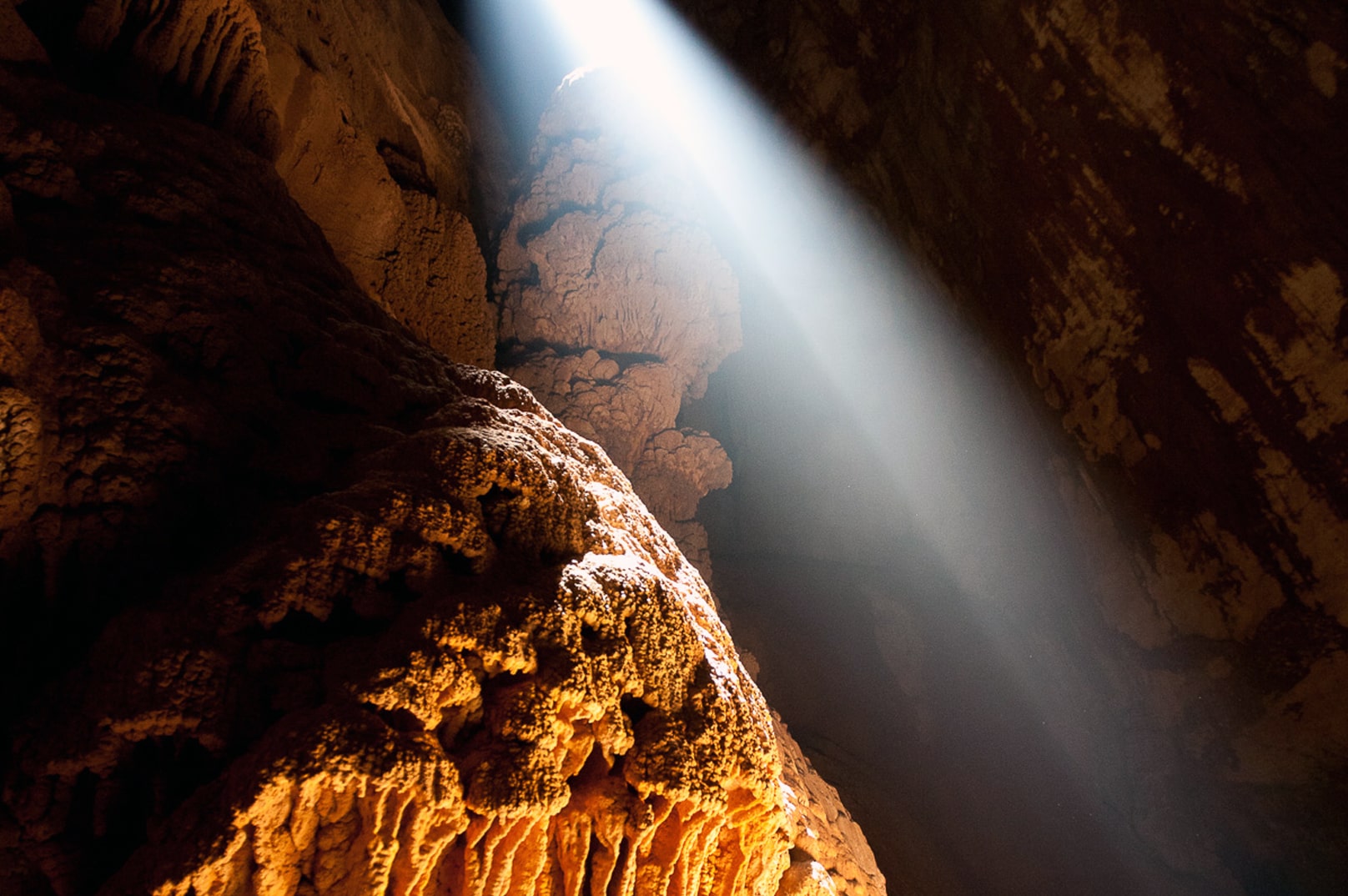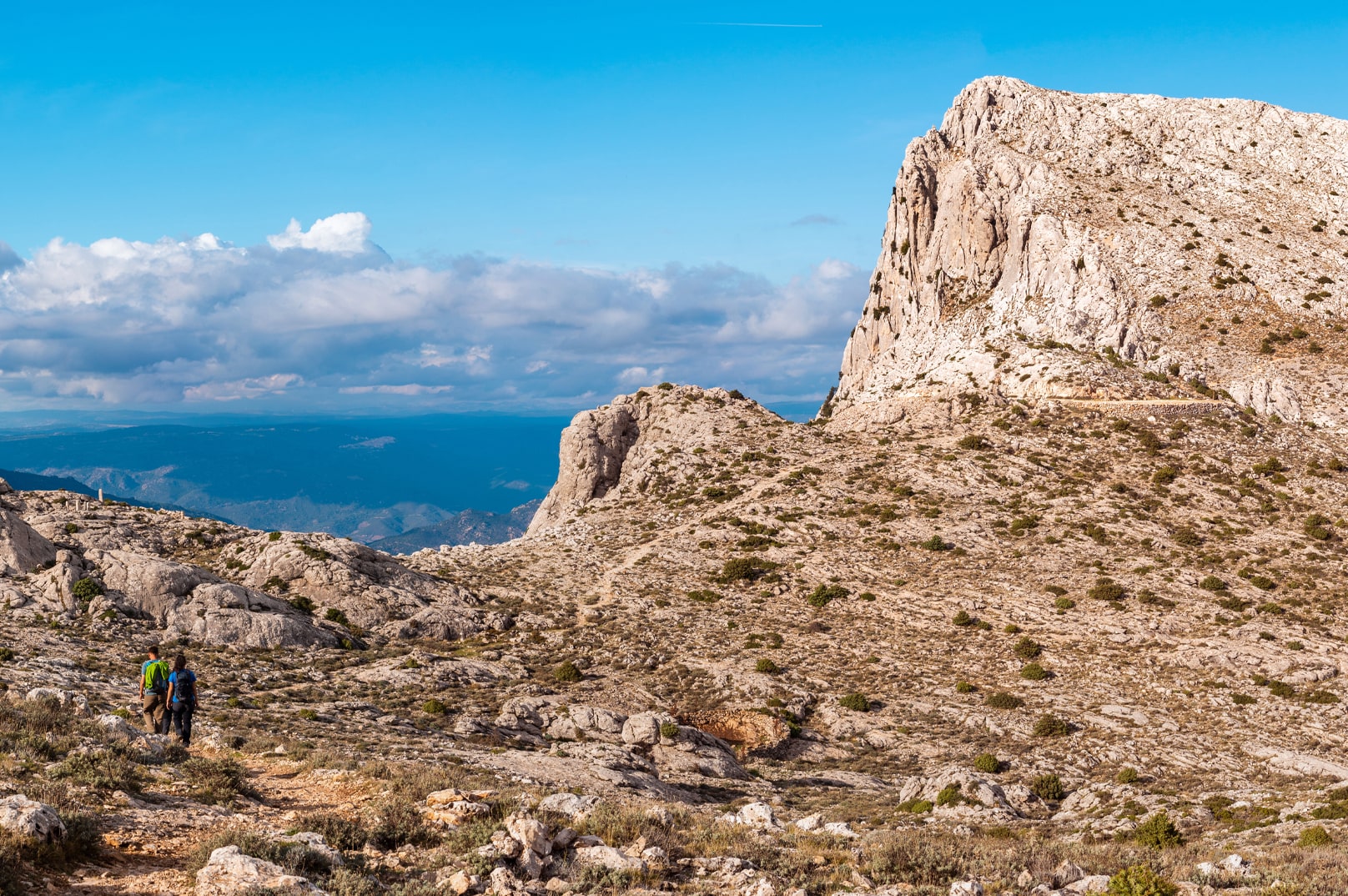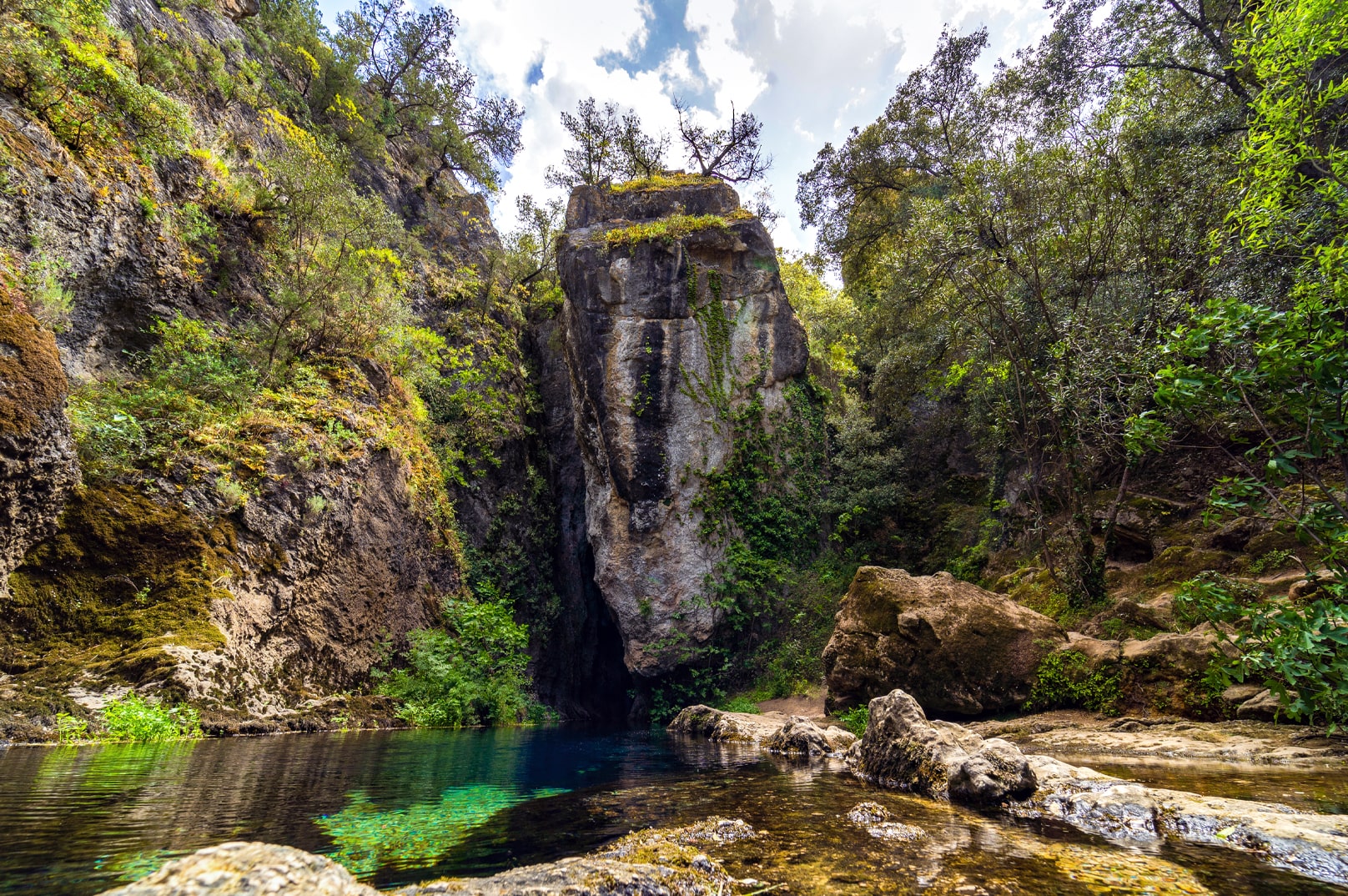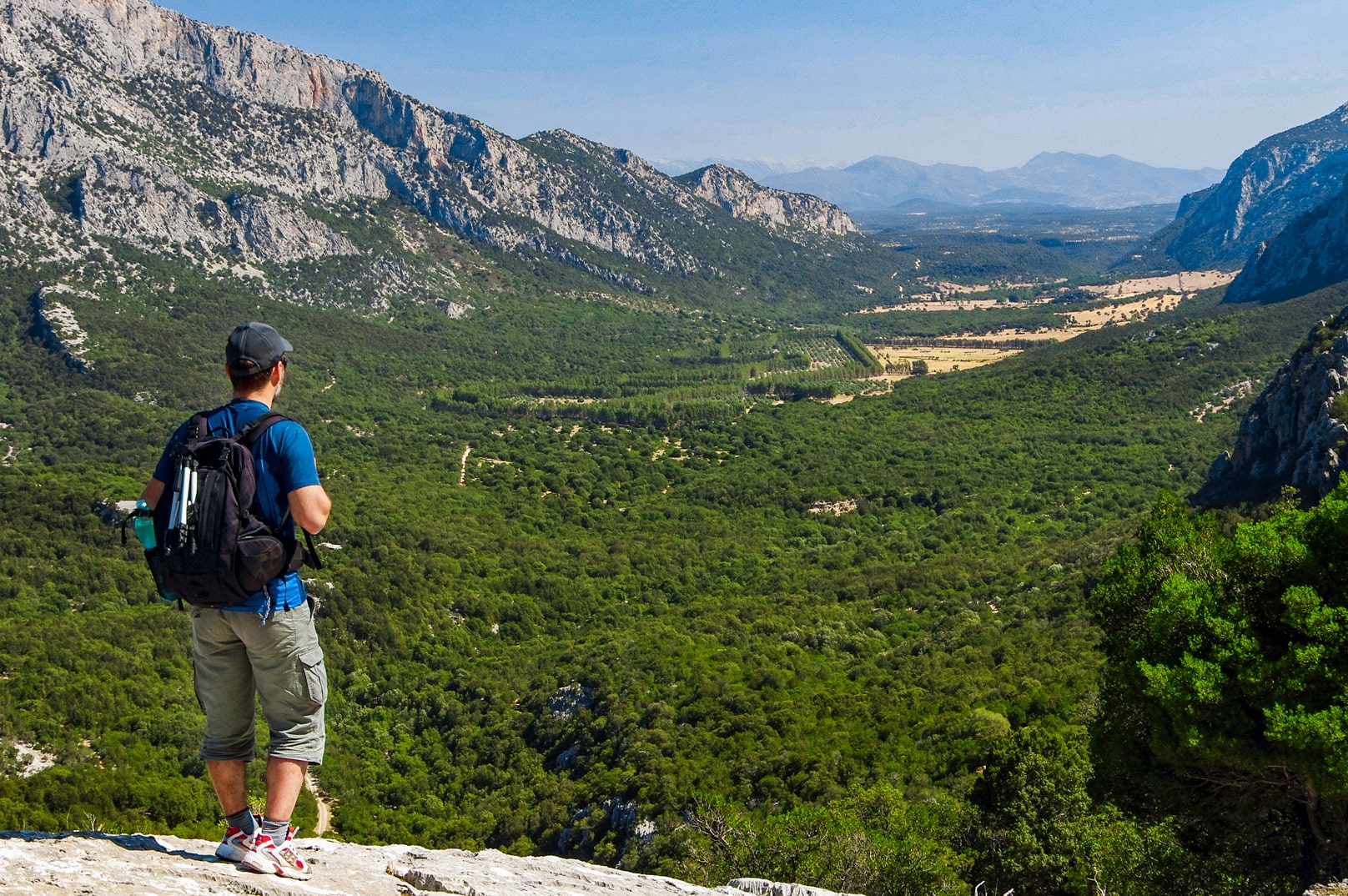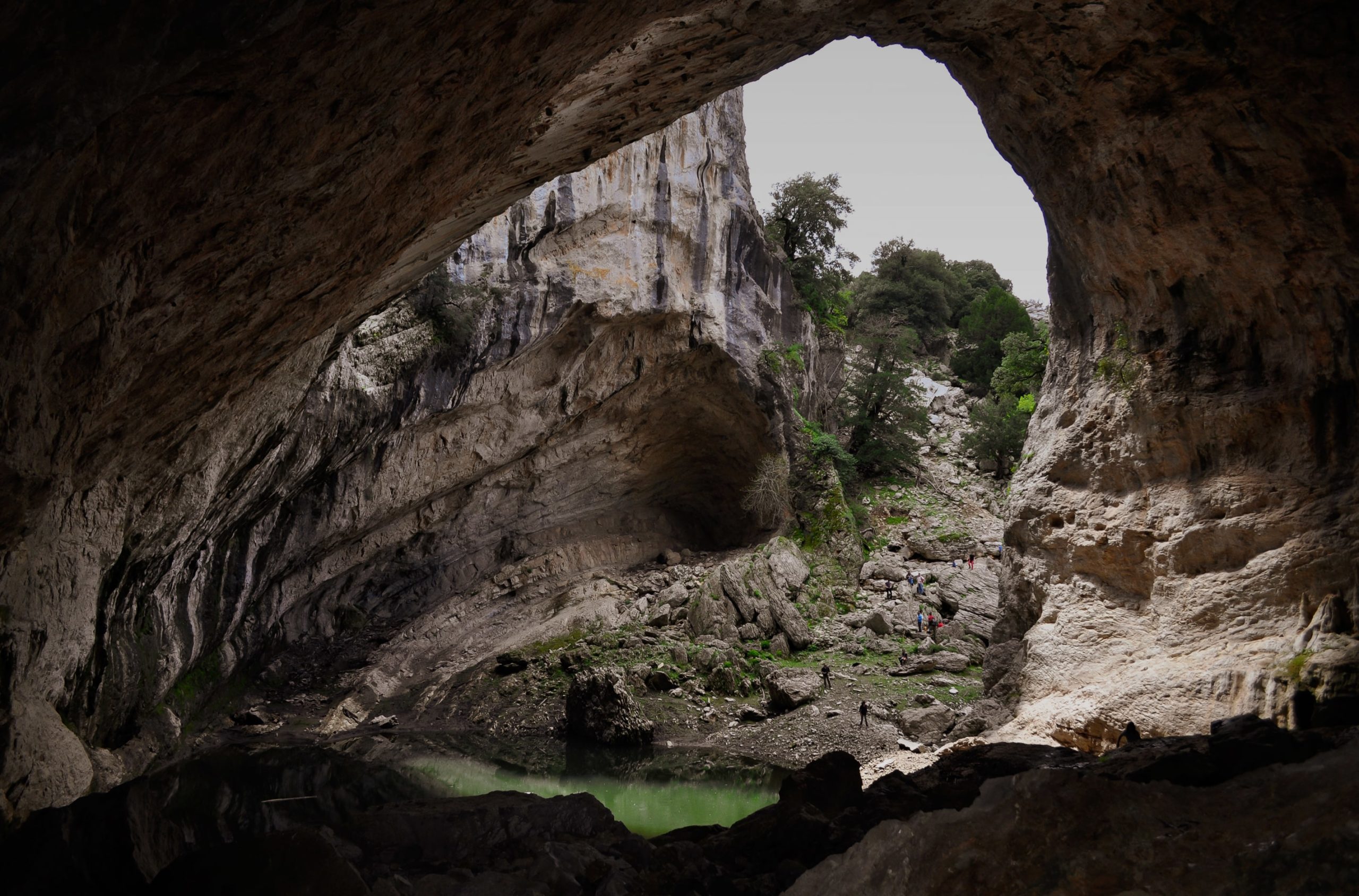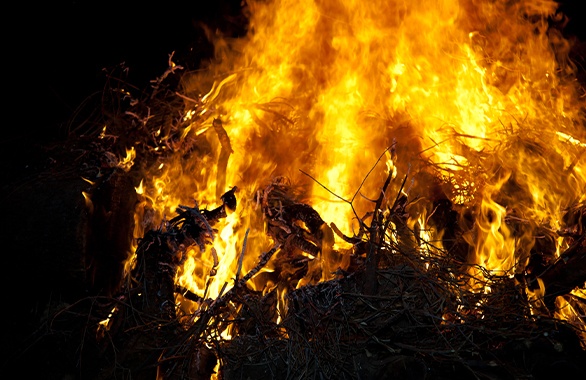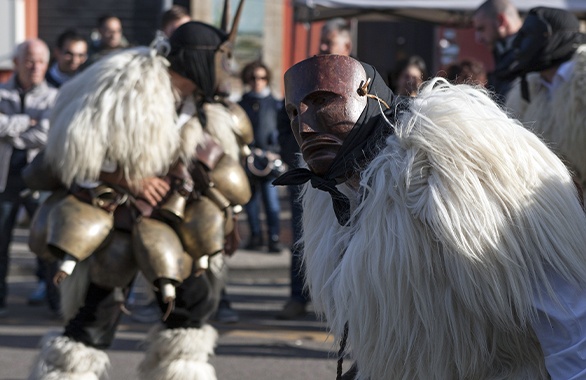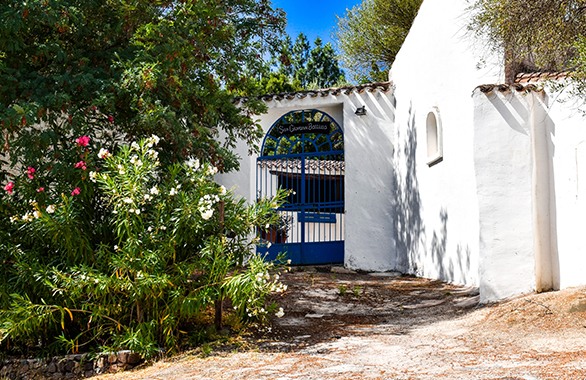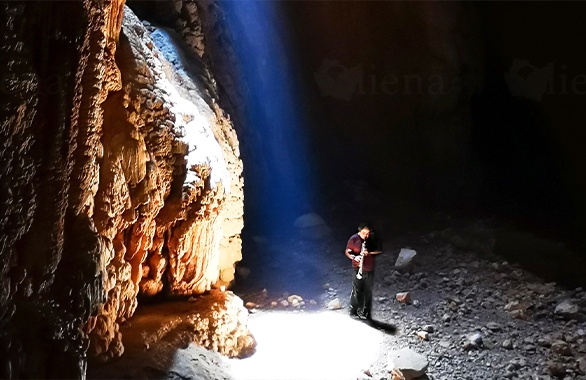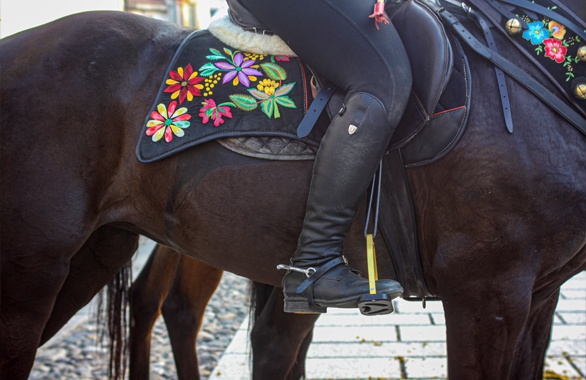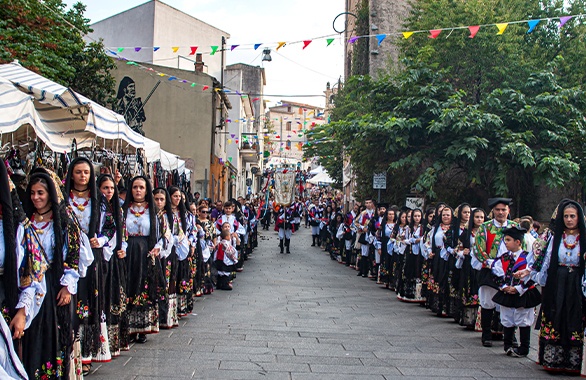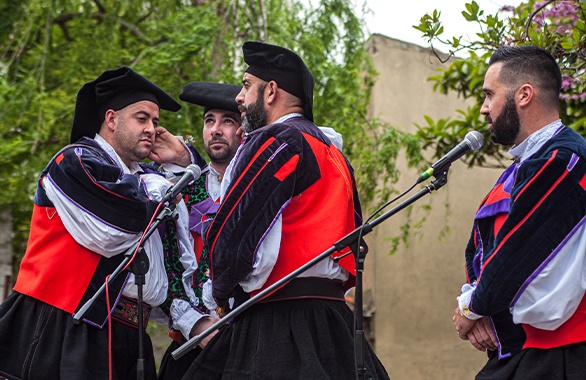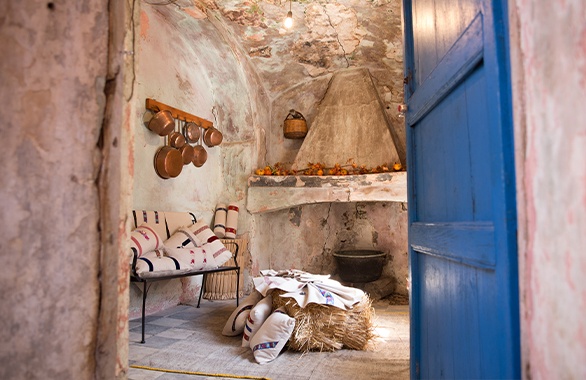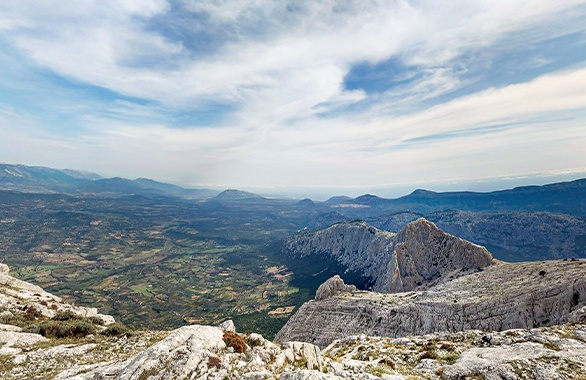Wild lands, archaeological sites, underground explorations.
In a word - adventure
Tiscali is a stunning Nuragic site set in the middle of a mountain and dating back to over 3000 years ago. It is just over its namesake mountain – just at the border between the Supramontes of Oliena and Dorgali – within a huge sinkhole, which makes it invisible from the outside. Due to the lack of springs and the difficulty of working the land nearby, this place might seem quite inhospitable, and yet many people after the founders chose to live here in the following centuries, until probably the High Middle Ages.
Sa Sedda ’e sos Carros is a Nuragic village used by people between 1200 and 700 BC.
Its uniqueness comes from two structures tied to the cult of water: the sacred spring has a circular shape and some ram heads from which water would flow, and a terraced ceremonial bath where people used to immerse and perform their purifying rituals.
On the elevated plateau known as Sa Sedda de Biriai, the ruins that emerge from the earth tell of ancient events with origins that predate the age of the nuraghi. The women and men who, in the Copper Age, gave life to this village settled in this area of central Sardinia, probably driven by the arrival on the island of another prehistoric culture, that of the Bell Beaker. The different communities that inhabited this locality have left important evidence that makes Biriai a site of exceptional archaeological interest.
The Papalope bridge is a small but in its own way monumental symbol of human ingenuity capable of spanning the centuries. Originally built in Roman times, it was reactivated by the Pisans in the Middle Ages to reinforce some important trade and agricultural routes. A remarkable testimony of local history but also of engineering: in spite of other much more recent constructions, it was still able to withstand the test of a disastrous flood in 2013, allowing transit to the numerous farms in the surrounding area.
The Corbeddu Cave in the Lanaitho valley is one of the most important sites of the island because it speaks about paramount moments in the history of man, culture, and nature.
The site is named after the famous bandit Giovanni Corbeddu, who made this place his home while hiding in the ’800s. It is said that you can still see his signature in one of the rooms, along with a drawing of a scale, a symbol of equity and justice.
Most importantly, though, the traces of Homo sapiens in Sardinia come from here.
The cave of Su Ventu, connected to that of Sa Ohe by a very long siphon, is part of a karstic system that, with its approximately 20 kilometers, is among the most extensive in Europe. Su Ventu opens up at an altitude of 206 meters and is known for its large halls, its height differences that sometimes exceed 100 meters and the wealth of karstic formations such as stalactites, stalagmites and sharp crystals. A veritable castle beneath the surface of the earth.
Sa Ohe Cave is a natural wonder set among high vertical walls, yews, maples and centuries-old junipers. It is part of an extensive karstic complex that links it to the Su Ventu cave, with a development of about 20 km (among the largest in Europe and still being explored) and a particular characteristic: a deafening roar announces the arrival of the waters just before the underground flood.
The cave of Elihes Artas, whose name derives from the imposing holm oaks under which its entrance opens, is a threshold into underground Sardinia, rich in precious ecosystems and breathtaking landscapes. This cavity, located on the Supramonte of Oliena in the locality of Pala de Tingiosu, offers access to a secret world through a short but inviting vertical entrance that leads to vast internal environments studded with exceptional limestone concretions.
Tuones, at 1025 meters above sea level, dominates the Oliena valley, towards Nuoro, Monte Ortobene and other localities in the surrounding area. This viewpoint, located above Monte Maccione, is a privileged destination for those seeking breathtaking views and direct contact with the unspoilt nature of Supramonte. A place immersed in the wildest greenery made hospitable by the presence of an old sheepfold, recently restored, and a rest area equipped with tables placed under the large trees.
At 870 meters above sea level, on the western slope of the Supramonte massif, let the gaze wander over valleys, small villages and heights to contemplate a glimpse of paradise.
From Sas Prunas, it is possible to admire Oliena and the surrounding mountains, in an area equipped for picnics, complete with a source of very fresh water, an ideal place for a refreshing stop during excursions.
The cave and chasm called Sa Nurre de su Hoda, also known as Tiscali-s chasm, is in the Lanaitho valley, within a big canal called Su Troccu de Oroglios.
It is a vast cavern with two entrances: the lower one was enlarged to let people get in, leading to a majestic area rich in calcareous concretions.
The upper one is only for expert cave explorers and faces a 103 metres chasm.
Pradu is one of the fundamental crossroads of Supramonte. It is a high plateau, characterized by precious endemic flora, from which one can enjoy a series of spectacular panoramic views. The locality is also known to movie lovers: in fact, the ruins of the set where the scene of Isaac’s sacrifice in John Huston’s famous film The Bible (1966) was filmed can still be found here.
Mount Corrasi is a natural hiking paradise in Sardinia. A massive limy-dolomitic wall dotted with olives and holm oaks at its bottom while shining white at the top.
This mountain hosts 70 endemic plant species – some only found here, like the extremely rare Ribes Sardoum Martelli) – and it was once the kingdom of giant vultures and the Sardinian deer. Today we see a vibrant fauna, including muflons, wild boars, martens, foxes, wild cats, weasels, dormouse, wild Sardinian hares and wild rabbits. You can also spot some birds of prey like the Golden Eagle, the goshawk, the sparrow hawk, the Peregrin falcon and the buzzard.
Su Gologone is a spectacular resurgent that looks like a small lake within two high dolomitic walls. When you visit it, you’ll be amazed by the crystal clear waters with shades of emerald green, teal up to deep blue.
The springs are at the bottom of Mount Uddè, in the Oliena’s Supramonte. They can be regarded as one of the main ones in Sardinia, thanks to their water capacity of more than 500 litres per second. This number can reach 10.000 with the high tide!
The Lanaitho valley is a narrow area that came about with the water erosion, once copious here. It is a carsic zone with water that makes underground caves and rivers, lakes, and resurgences.
See for yourself canyons and dizzy gorges, desert plateaus, lush forests and sinkholes; unknown and ever-changing landscapes will unfold in front of your eyes.
In the evening, have a well-deserved rest over the fire with a glass of wine – you’ll get familiar with the warm (and essential) welcome of the pinnetos (mountain shelters similar to cabins), which remind you of the housings in the ancient Nuragic times.
You’ll be surrounded by unique flora and fauna, by families of cautious mouflon, majestic golden eagles, and solitary goshawks.
